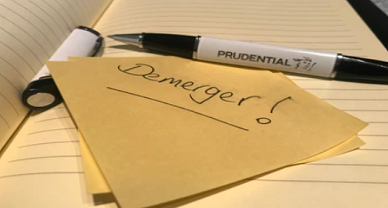Buy-Back Of Securities Of Companies In India
A share re-purchase, often known as a buyback, occurs when a firm purchases its own existing shares in order to decrease the number of shares accessible on the stock market. Companies can invest in themselves through buybacks. Reduced market share ownership raises the number of shares possessed by investors. Companies purchase back shares for a variety of purposes, including increasing the worth of remaining accessible shares by lowering supply or preventing other owners from gaining control.
APPLICABLE ACTS
- Companies Act, 2013 – Section 68, 69, 70
- Companies (share capital and debentures) Rules, 2014 – Rule 17
- SEBI (Buy-back of Securities) Regulations, 2018
- Income Tax Act, 1961 – Section 115QA

A firm may consider buying its own securities or other shares (including employee stock options notified by the central government) with funds from its free reserves, the securities premium account, or the receipts of the issuance of any shares or other stipulated securities. Therefore, no repurchase of any form of share shall be conducted using the proceeds of a previous issuance of the same type of share.
METHODS OF BUY-BACK
The following are the possible methods for buyback:
- Purchase of existing shareholders’ shares on a proportionate basis for the purpose of buyback.
- Purchase of a company’s own shares on the open market.
- Buyback of securities that were issued to employees as part of an employee stock ownership plan (ESOP) or sweat equity.
CONDITIONS FOR A BUY-BACK
- The firm’s Articles of Association (AOA) should permit Buy-Back; if there is no clause in the AOA, the AOA should be amended first.
- In the case of a Special Resolution, the descriptive statement must include the elements mentioned in Section 68(3) of the Companies Act, 2013 and Rule 17(1) of the Companies Act, 2014.
- The debt-equity ratio after the buyback cannot be greater than 2:1.
- In a fiscal year, a buyback can be done only of fully paid-up shares.
- A buy-back proposal cannot be made within one year of the closing of the prior buy-back proposal, if there was any.
- Each buy-back should be finished within a year of the passage of the Board Resolution.
- After an offer has been declared to shareholders, it cannot be withdrawn.
- Cooling Period: For a duration of six months following the conclusion of the buy-back, the firm can offer the same type of shares, such as rights issues, save for bonus issues or the fulfilment of existing commitments (altering of warrants or preference shares or debentures).
PROCEDURE OF BUY-BACK FOR UNLISTED COMPANIES
- Call a meeting with the Board of Directors of the company.
- Sending notice for the general meeting at least 21 days prior to the date of the meeting.
- Passing a special resolution and an explanatory statement in the general meeting as per Section 68(3) and Rule 17(1) of the Companies Rules, 2014.
- Approving the buyback in the general meeting.
- Filing of form MGT-14 with the registrar of companies within 30 days of the special resolution being passed.
LETTER OF OFFER
- Prior to the buy-back, the firm that through a special resolution permits the buy-back and will file a Letter of Offer with the registrar, which should be duly signed by the MD and any one director, in e-form SH-8.
- This Letter shall be sent out to the investors suddenly after filing with the Registrar within 20 days, making sure the issues are as outlined in Rule 17 of The Companies (Share Capital and Debentures) Rules, 2014.
- The buy-back offer should be active for at least 15 days and an utmost of 30 days from the date of mailing of the offer letter. With the consent of all members, this period can be decreased to 15 days.
SOLVENCY
- Along with the letter of offer, the firm requesting the buy-back via a special resolution must submit a statement of solvency in e-Form SH-9, which should be duly signed by the MD and any one director, and validated by an affidavit by the Board of Directors.
ACCEPTANCE
- Acceptance by each shareholder must be on a pro-rata basis out of the total shares proposed for buyback if the number of shares proposed by the shareholders exceeds the entire number of shares for buyback by the firm.
BANK ACCOUNT
- Following the completion of the buy-back proposal, the company must apply for a new bank account and deposit the whole amount that is due as consideration for the shares offered for purchase there.
VERIFICATION PROCESS
- The shares or equivalent securities deposited shall be regarded to be received unless a notification of rejection is given within 21 days of the date of the closure of the offer. The firm shall wrap up the verification process of the proposals received within 15 days from the day of completion of the offer.
PAYMENT OF THE SHARES
- The payment of the amount in cash must be made to those shareholders whose shares have been bought within seven days of the date on which the proposals were verified.
Those whose shares were not accepted should have their share certificates returned to them.
CANCELLATION OF SHARES
- Within seven days following the conclusion of a buy-back, a company shall cancel and actually destroy any shares that were repurchased by the company.
RETURN OF SHARES
- Within 30 days of the closure of the buy-back, one is required to submit a return of the buy-back through form SH-11, accompanied by a compliance certificate through form SH-15, signed by an MD and one more director. The compliance certificate must state that the buy-back was completed in accordance with the clauses of the act.
RECORD OF BUYBACK SHARES
- The Company is required to keep a record of shares that have been repurchased in Form SH-10. This record is to be kept at the Registered Office of the Company and stored in a secure location.
PENALTY
The following sanctions are to be applied to a business in the event that it fails in any way to comply with the provisions outlined in Section 68: If the company or an employee is found to be in violation of the law, they will be subject to a fine that must be at least one lakh rupees and can go up to three lakhs.
APPLICABLE PROVISIONS
COMPANIES ACT, 2013
- SECTION 69
When a firm buys its own securities using free reserves or a securities premium account, the balance sheet must include information about the transfer of a sum equivalent to the approximate value of the shares bought. This payment must be moved to the capital redemption reserve account.
The firm may use the capital redemption reserve account to settle outstanding shares that will be distributed to shareholders of the firm as fully paid bonus shares.
- SECTION 70
If a firm has failed on the payments of deposits or interest payable thereon, or in repayment of debentures or preference shares or dividends thereon, or in repayment of any term loan, the firm should not buy back its securities or other defined securities explicitly or implicitly through any subsidiary, including its own subsidiaries; through investment or through any other subsidiary.
On the other hand, the ban won’t be enforced anymore if the violation has been fixed and at least three years have passed since the default stopped being an issue in the first place.
INCOME TAX ACT, 1961
- SECTION 115QA
Buy-Back Tax must be paid by the firm on the dispersed income, which is simply the amount paid by the firm on the buyback of shares, less the amount received by the company on the issuance of such shares, as computed in accordance with Rule 40BB of the ITR, 1962.
Additionally, the corporation must pay this buyback tax in addition to any other taxes it may have already paid on its overall income. An appropriate rate of 23.296 percent is applied to the tax imposed on share buybacks (20% + 12% SC + 4% H&EC).
The amount calculated should not be greater than the FMV of the company’s shares, since doing so could result in the differential amount being taxed as a presumed dividend under section 2(22)(e), assuming the shareholder-company relationship specified in that section is true.
According to Section 10(34A) of the ITA, Buy Back Tax is assessed at the corporate level, and subsequent revenue that ends up in shareholders’ hands is exempted from taxation.
ADVANTAGES OF A BUYBACK
According to the company, buy-backs have the following benefits:
- A business that has capital that cannot be used profitably may sell it off and restructure its capital in order to get rid of it.
- When free reserves are used for buybacks rather than dividends, the company’s stock value and earnings per share increase.
- The corporation may use excess cash for buybacks in order to avoid paying dividend tax.
- The use of buy-backs as a tool to prevent an unfavourable hostile takeover of the company is possible.
Author: Paridhi Agarwal – an Intern, and Co-Author: Ajay Kacher – Legal Associate, at IP & Legal Filing, in case of any queries please contact/write back to us at support@ipandlegalfilings.com.



